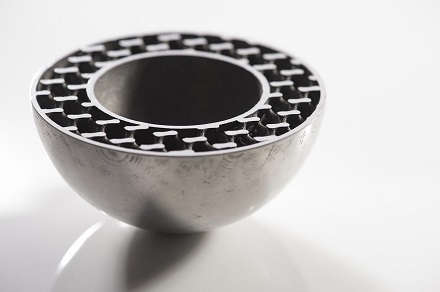
One of the biggest priorities for automotive manufacturers in recent years have been the reduction of weight. Engineers at the University of Nottingham have found a new technique for making automotive components that are lighter and safer. They found that by using selective laser melting (SLM), they could make lightweight automotive components which can increase vehicle fuel efficiency, reduce CO2 emissions and reduce noise by a significant extent.
They made these components with a new additive manufacturing process as part of the Functional Lattices for Automotive Components (FLAC) project; the aim is to achieve significant weight reductions in new vehicle components. As part of the process, they used a 3D Computer Aided Design model to digitally reproduce the vehicle components in a number of layers. Each layer was sequentially recreated by melting sections of a bed of aluminum alloy powder using a laser beam. When this was done layer by layer, the melted particles fused and solidified to form complex new lattices which were used to make a light-weight component.
Professor Chris Tuck, project lead and member of the additive manufacturing and 3D printing research group, said that the FLAC project would be of great benefit to UK automotive companies. Using such innovative techniques for the design and manufacture of lightweight automotive components will make them more competitive. They will also benefit from shorter lead times and lower costs than are presently available.
By adopting such techniques, manufacturers can minimize waste as only the required materials are incorporated into the built component. A few automotive components that could eventually be build using this technique include heat sinks for LED headlights, powertrain sub-systems and brake calipers.
The three-year FLAC project will look at the viability and cost analysis of SLM, along with possible manufacturing routes and supply chain models.

 Industry News
Industry News